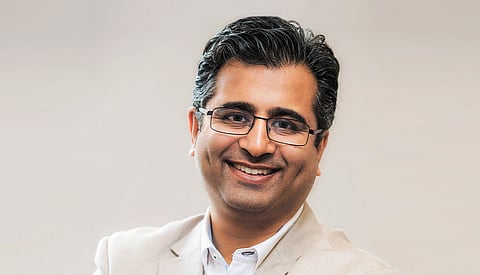Countries reform fastest during crises. India is no exception. In a six-part series starting tomorrow, India Inc. Group Founder and CEO, Manoj Ladwa explains how COVID-19 presents India with an opportunity to push through reforms that can herald a new economic renaissance.
Highlights:
The current government has the political capital to push through necessary, but politically contentious, measures to ease processes, cut down bureaucracy and eliminate corruption.
It is planning to prepare a stimulus and reforms package to revive the economy and position India as an alternative to China.
The time is now right to grab the chance provided by the COVID-19 pandemic to change the factors that are holding India back.
India's GDP will certainly contract in this current quarter, the Government of India's Chief Economic Advisor K. Subramanian has said. He added that despite this, the economy will grow, albeit only marginally, during the full financial year.
Such a prognosis would normally be considered devastating in a young and highly aspirational country like India. But it's a sign of the times we live in that this statement actually provides some comfort to foreign and domestic investors, and pretty much everyone else with a stake in India's well-being, that the country is not (so far) staring at a recession.
This, however, doesn't lessen the pain that almost all sectors of the Indian economy are feeling. The Modi government is busy preparing a stimulus and reforms package to revive the economy and position India as an alternative to China for US, European, Japanese and Korean companies looking for alternative investment destinations.
This is also the right time to implement deep and far-reaching systemic reforms, a la 1991. India now has a government with a parliamentary majority and a Prime Minister with unprecedented personal popularity. The government, therefore, has the political capital to push through necessary, but politically contentious, measures.
Legacy of socialist planning
To make India truly competitive vis-a-vis its peer nations in South East Asia, which are also trying to lure the investors leaving China, India will have to shed the last vestiges of socialist planning - a lingering legacy of the Jawaharlal Nehru and Indira Gandhi eras.
Since coming to power, the Modi government has implemented a slew of reforms to ease processes, cut down bureaucracy, eliminate corruption and improve investor comfort. As a result, India's rank in the World Bank's Ease of Doing Business Index has jumped a record 79 places from 142nd position in 2014, when Modi came to power, to the 63rd place now. Then, his government has cut the corporate tax rate to 25 per cent for existing companies and 17 per cent for those that start manufacturing before 31 March 2023 - making Indian tax rates among the lowest among peer nations.
India's rigid and outdated factor markets for land, labour and capital, however, remain a drag on the economy. Then, energy and logistics costs for industries in India are much higher than in China and South East Asia. And India's infrastructure, mostly unreformed lower-level bureaucracy and a glacial-paced legal system add to costs, rendering many Made in India products less competitive than those produced in China and the ASEAN.
So far, Prime Minister Modi has preferred incremental reforms over shock therapy, and rightly so, as he inherited a most corrupt system and complex set of problems. And much, even with that approach, has been achieved over the past six years.
But time and public attitudes demand that something big has to be done for India to achieve its true, and hitherto, illusive potential. The time is now right to grab the chance provided by the COVID-19 pandemic to reform the factors that are holding India back, so that when the crisis truly passes, the country is better placed to forge ahead on all cylinders. As Winston Churchill once said: “Never waste a good crisis.”
From tomorrow, I will write a daily column over six days outlining my vision for making India's economy fit, nimble and foreign investor friendly for a brave new post-COVID-19 world.
 Manoj Ladwa is the Founder and Chairman of India Inc. Group.
Manoj Ladwa is the Founder and Chairman of India Inc. Group.
